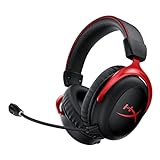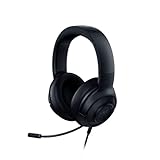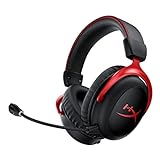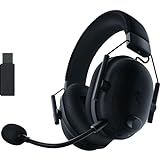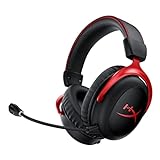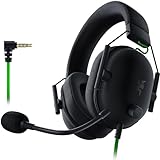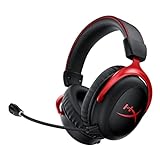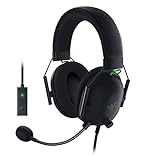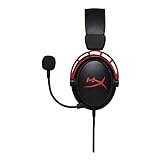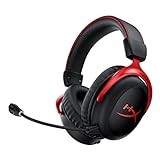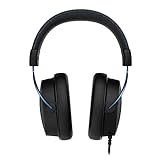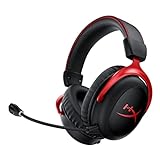HyperX Cloud II Wireless vs SteelSeries Arctis 1 - Where are the differences?
Where are the differences?
Let's take a closer look at the differences between the Cloud II Wireless* and Arctis 1* gaming headsets.
What year are the headsets from?
The release year is of course important when comparing two headsets. After all, the release date has an influence on the state of the art and usually also affects the price. The HyperX Cloud II Wireless is from the year 2021 and thus newer than the SteelSeries Arctis 1. This one is from the year 2019. Which puts 2 years between the two gaming headsets.
Connection options
Let's start with the connectivity options from HyperX Cloud II Wireless and SteelSeries Arctis 1. Only the SteelSeries Arctis 1* can be operated by cable. This is not possible with the HyperX Cloud II Wireless. A wired connection reduces connection problems and interference, which is an advantage. In return, the cable can possibly interfere.
Radio offers the disadvantage that there can be interference in the verdinbung. In addition, with radio you are usually dependent on a battery, which can also go flat during use. There is one more difference in the connection. The HyperX Cloud II Wireless* can be connected wirelessly, unlike the SteelSeries Arctis 1. However, often the wireless headsets also offer the additional option to connect the headset via cable.
Cable and battery
In this comparison, only the HyperX Cloud II Wireless has a built-in battery. The battery life is up to HyperX Cloud II Wireless.
Audio
With a driver size of 53 mm, the HyperX Cloud II Wireless offers more at this point. The SteelSeries Arctis 1 has a driver size of 40 mm. A larger driver helps reproduce especially low frequencies better and louder. However, it is only one of several factors.
For the HyperX Cloud II Wireless the frequency range starts at 15 Hz. For the SteelSeries Arctis 1 the value is at 20 Hz. The end is at 20000 Hz for both. What is really important here is the range between 50 Hz and 10,000 Hz, which is covered by just about every headset nowadays.
The higher the impedance, the more power a speaker can produce. Also the sound becomes clearer. With a value of 32 Ω the HyperX Cloud II Wireless* performs better here. The impedance of the SteelSeries Arctis 1 is at a value of 32 Ω.
Only the HyperX Cloud II Wireless offers the possibility for 7.1 surround sound.
Dolby Atmos is a special feature of the SteelSeries Arctis 1*. The system is not to be confused with 7.1 surround sound. Dolby Atmos is the next generation, which can additionally provide sound effects from above. As a rule, a driver or adapter is necessary for this.
Microphone
Of course, both headsets have a microphone built in, which is also adjustable. Additionally, the microphone can be detached for both the HyperX Cloud II Wireless and the SteelSeries Arctis 1. If no microphone is needed or the headset is to be transported, this can be an advantage.
A noise suppression is integrated in both. This is especially interesting for minimizing click and keyboard noise.
The microphone frequency range of the HyperX Cloud II Wireless starts at 15 Hz. The microphone of the SteelSeries Arctis 1 starts at 20 Hz. The end of both microphones is at 20000 Hz
Volume control and mute
Almost every gaming headset offers the possibility of volume control and mute. So it is also in this case.
Both models offer the option of muting. The operation is done for the HyperX Cloud II Wireless and SteelSeries Arctis 1 by Auricle.
Which headset has more features?
Finally, let's take a look at the equipment. Here, some models have lighting. These two headsets don't have that, but it doesn't affect the performance negatively. After all, the illumination is just a matter of taste.
Furthermore, some headsets have freely programmable buttons, as is also known from gaming mice or keyboards. But you have to do without this for the HyperX Cloud II Wireless and SteelSeries Arctis 1.
